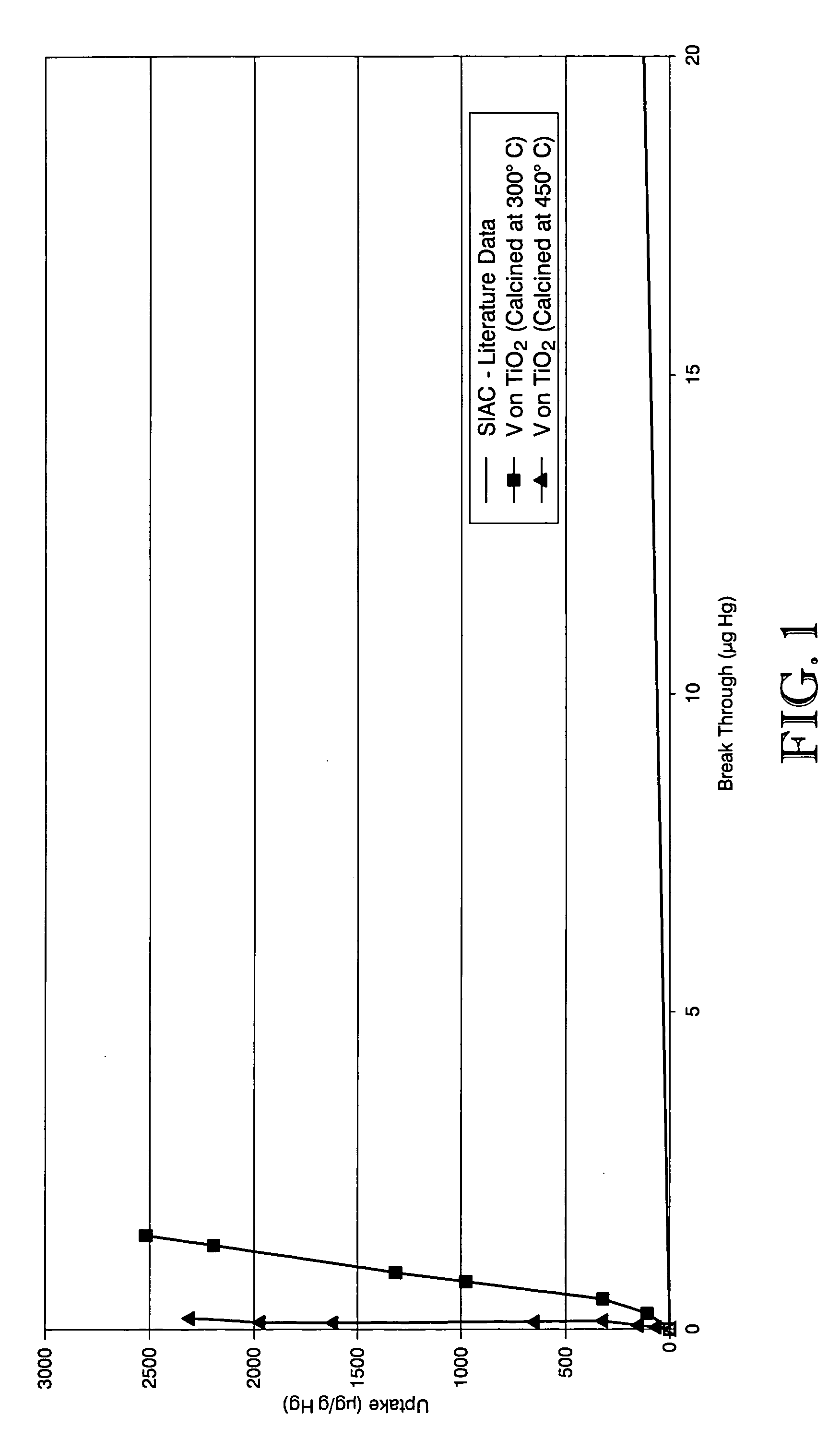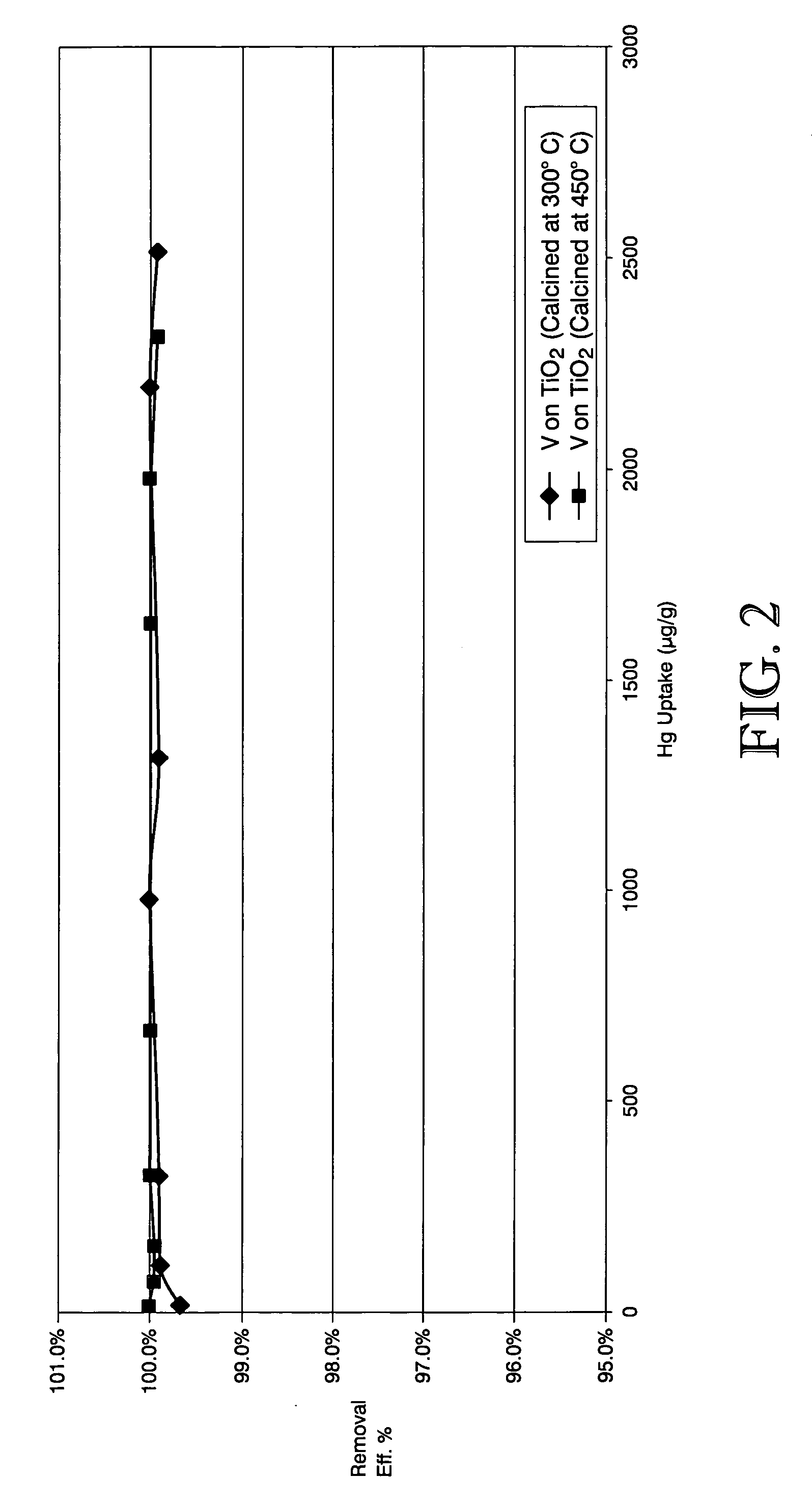Mercury removal sorbent
a sorbent and mercury technology, applied in the direction of physical/chemical process catalysts, metal/metal-oxide/metal-hydroxide catalysts, separation processes, etc., can solve the problems of low capacity of adsorbents, affecting the health and mental acuity of young children and fetuses, and affecting the adsorption effect of sorbents, etc., to achieve the effect of high capacity
- Summary
- Abstract
- Description
- Claims
- Application Information
AI Technical Summary
Benefits of technology
Problems solved by technology
Method used
Image
Examples
example
[0033] The following example illustrates preferred sorbent materials and methods of making the same in accordance with the present invention. This example should not be taken as limiting the scope of the present invention in any way.
[0034] In this example, a sorbent material according to the present invention was prepared by first dissolving 51.4 g ammonium metavanadate (NH4VO3) in 440 g of oxalic acid. In order to maintain the vanadium in its +5 oxidation state (indicated by a reddish color), hydrogen peroxide was added drop wise to the solution (approximately 120 drops were used). The NH4VO3 solution was then mixed with 200 g of TiO2 in four steps thereby impregnating the NH4VO3 onto the TiO2 by incipient wetness. In each step, 125 g of the NH4VO3 solution was added and the material dried at 248° F. (120° C.) for one hour before beginning the next step. Next, 20 g aliquots of the material were calcined at 45-degree increments from 572-932° F. (300-500° C.).
[0035] Two aliquots we...
PUM
| Property | Measurement | Unit |
|---|---|---|
| Temperature | aaaaa | aaaaa |
| Temperature | aaaaa | aaaaa |
| Fraction | aaaaa | aaaaa |
Abstract
Description
Claims
Application Information
 Login to View More
Login to View More - R&D
- Intellectual Property
- Life Sciences
- Materials
- Tech Scout
- Unparalleled Data Quality
- Higher Quality Content
- 60% Fewer Hallucinations
Browse by: Latest US Patents, China's latest patents, Technical Efficacy Thesaurus, Application Domain, Technology Topic, Popular Technical Reports.
© 2025 PatSnap. All rights reserved.Legal|Privacy policy|Modern Slavery Act Transparency Statement|Sitemap|About US| Contact US: help@patsnap.com


